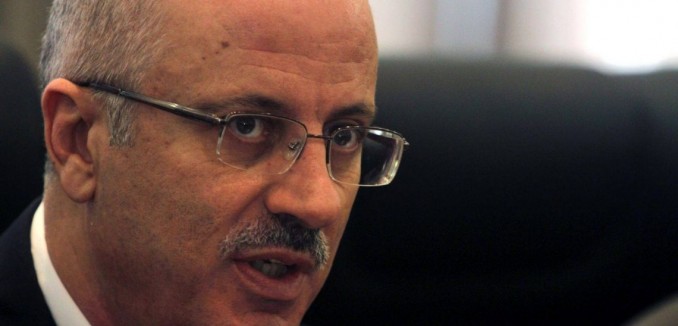The Palestinian Authority is likely to impose austerity measures after a reduction in overseas funding, the PA Prime Minister warned on Tuesday.
Rami Hamdallah told Al-Quds newspaper that “we had expected to get $1.2 billion in [external] support and aid but we have only received $640 million so far”. In a statement, the PA cabinet said that it expects to run a budget deficit in 2017 of $1.06 billion, equivalent to 15 percent of gross domestic product. The statement further said that it expects the shortfall in foreign funding to amount to $765 million in 2017 and that “such a decline compels us to adopt a austerity in all fields”.
Saudi Arabia, Turkey, and United Arab Emirates in particular have cut back their contributions to the PA in recent months, Reuters reported. Saudi Arabia contributed around $20 million each month to the PA until last April, but has reportedly stopped payments in part to pressure PA President Mahmoud Abbas to implement political reforms.
The European Union and U.S. have also recently reduced their direct budgetary support to the PA, opting instead to fund specific development projects, Reuters added. In December 2016, following concerns that foreign aid money was being used to pay the salary of Palestinian terrorists, the British government announced that it will continue to provide taxpayer-funded aid to the PA, with a series of “critical changes” to how the system was previously run. British aid will focus “solely on vital health and education services,” with funding going towards “the salaries of health and education public servants on a vetted list” only.
In September, Israeli government Minister Tzachi Hanegbi attended a conference of international donors to the PA in New York. He reportedly asked the donor countries to help bolster the Palestinian economy, with Israel keen to maintain stability in the PA-controlled West Bank.
Hanegbi reportedly outlined to the international representatives a number of development projects that Israel is supporting in order to improve Palestinian living standards. Hanegbi specifically highlighted a decision to link the PA to Israel’s natural gas pipeline, the supply of six million cubic metres of water to the PA, new banking cooperation and the allocation of phone networks.
[Photo: BICOM]




